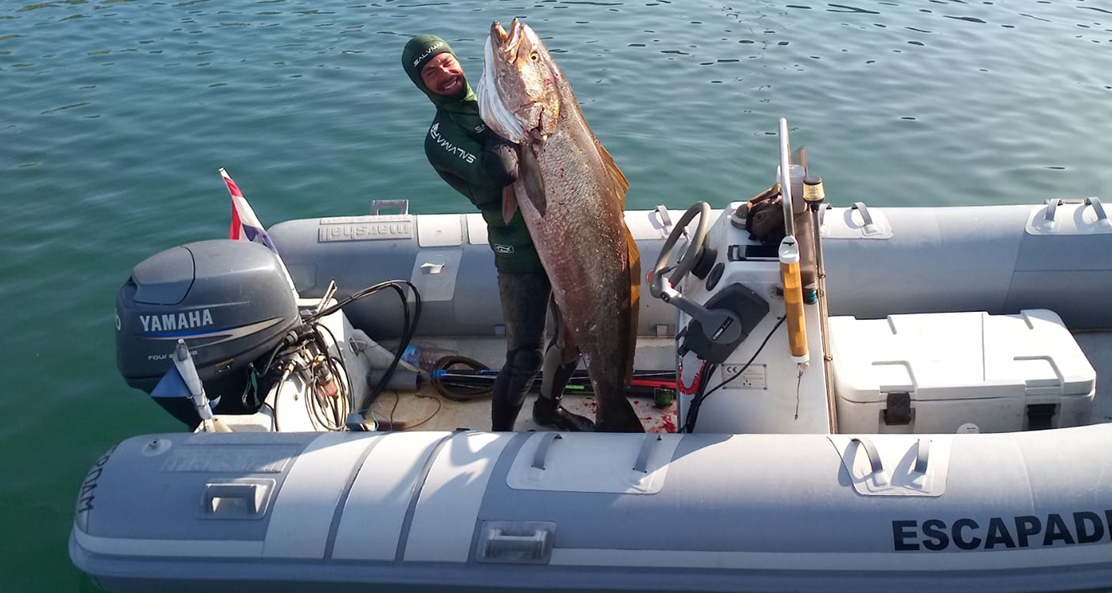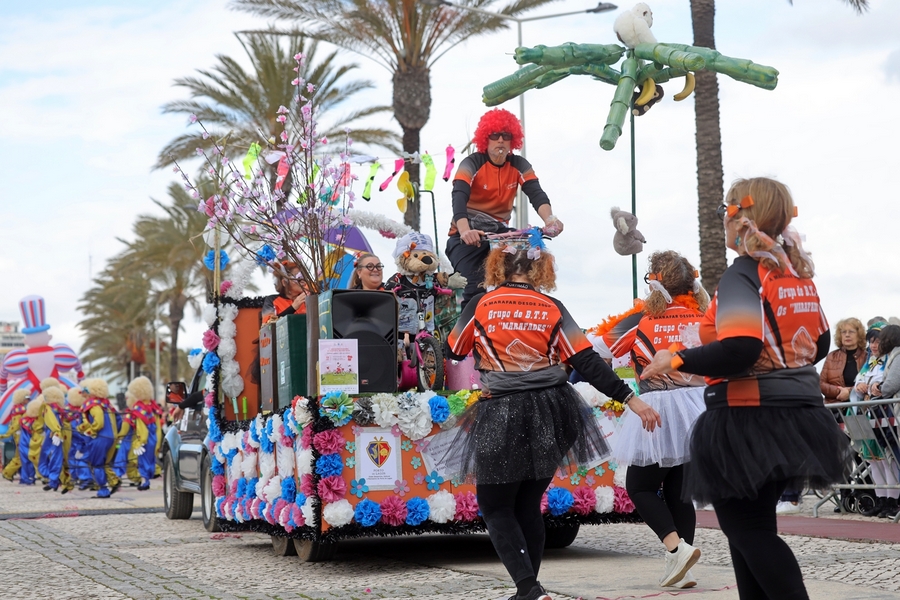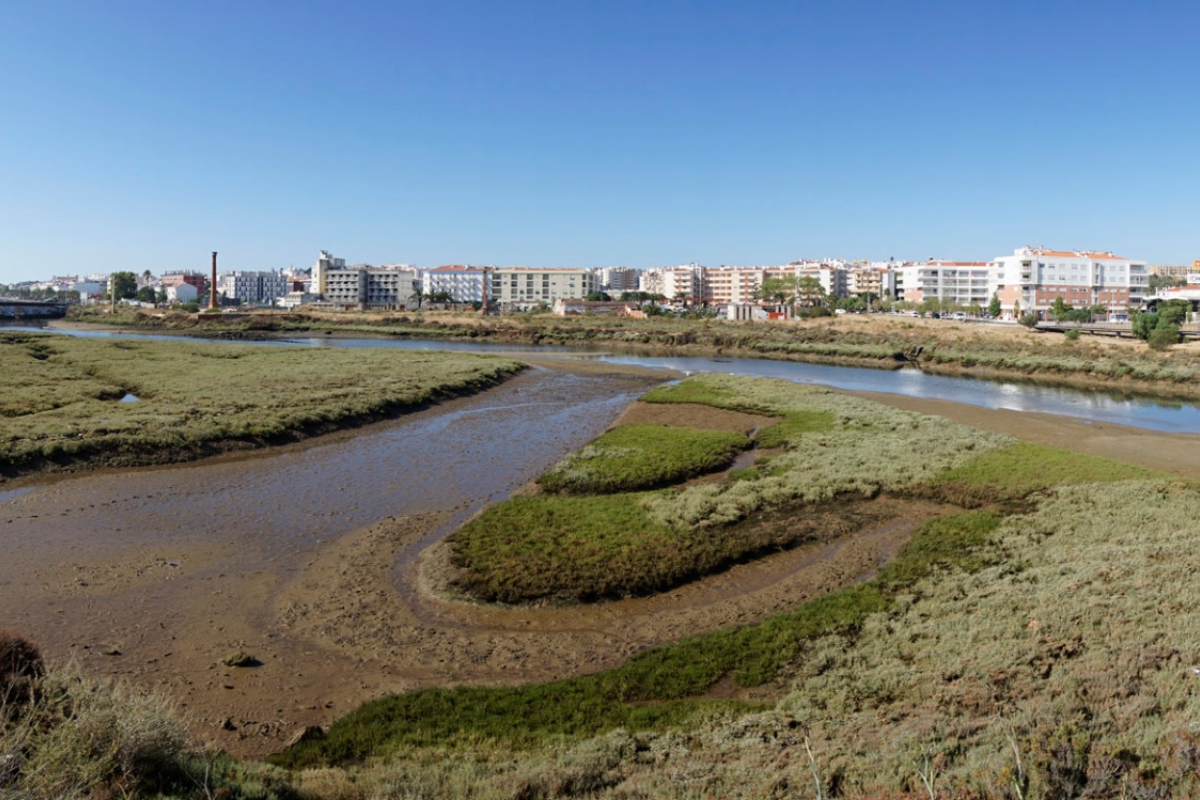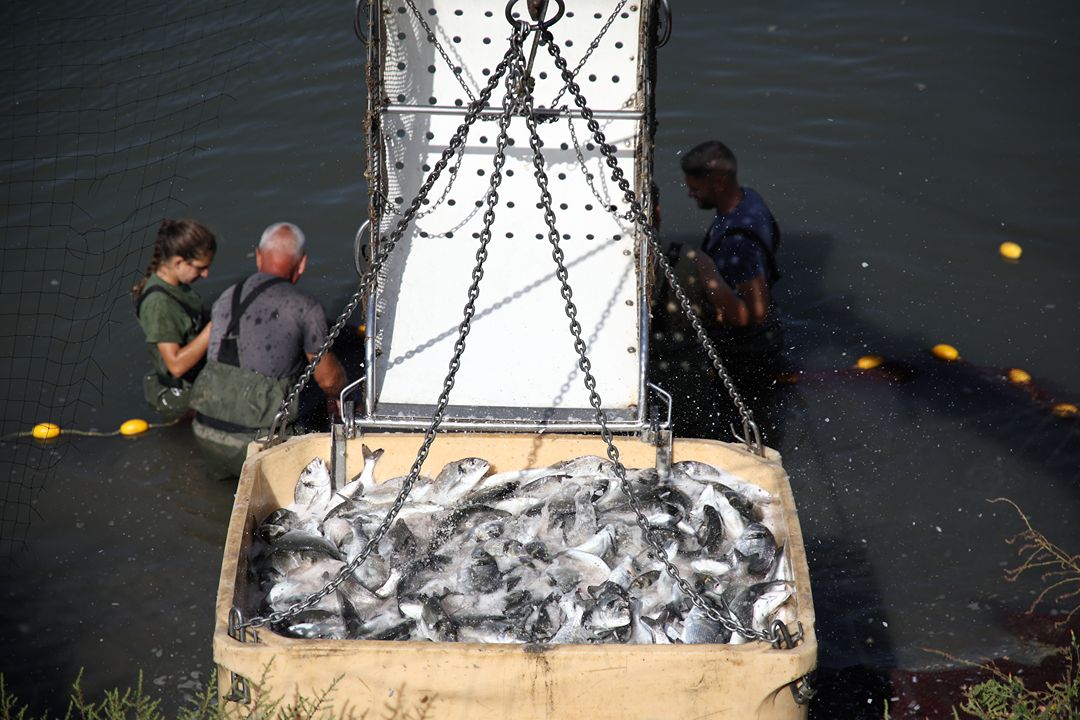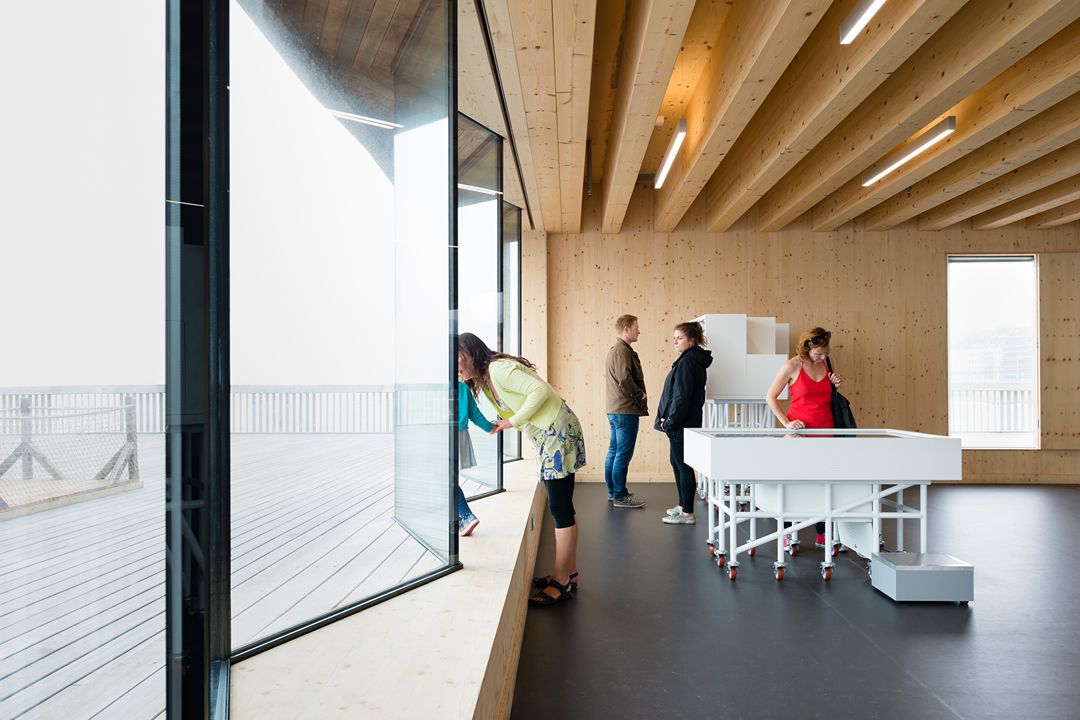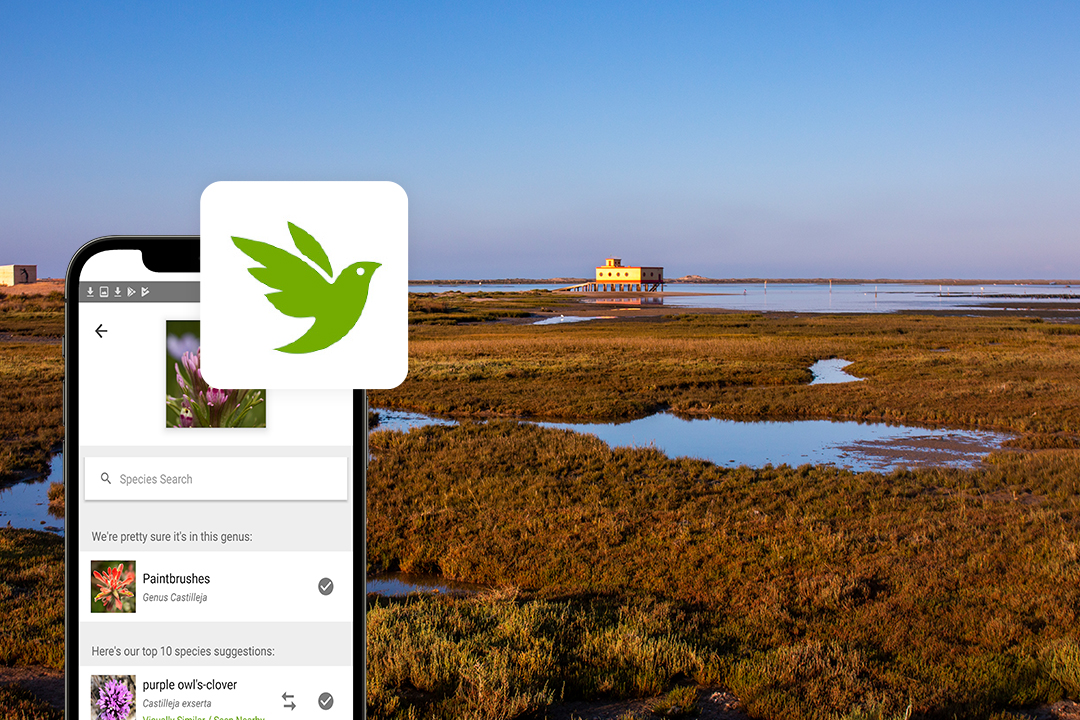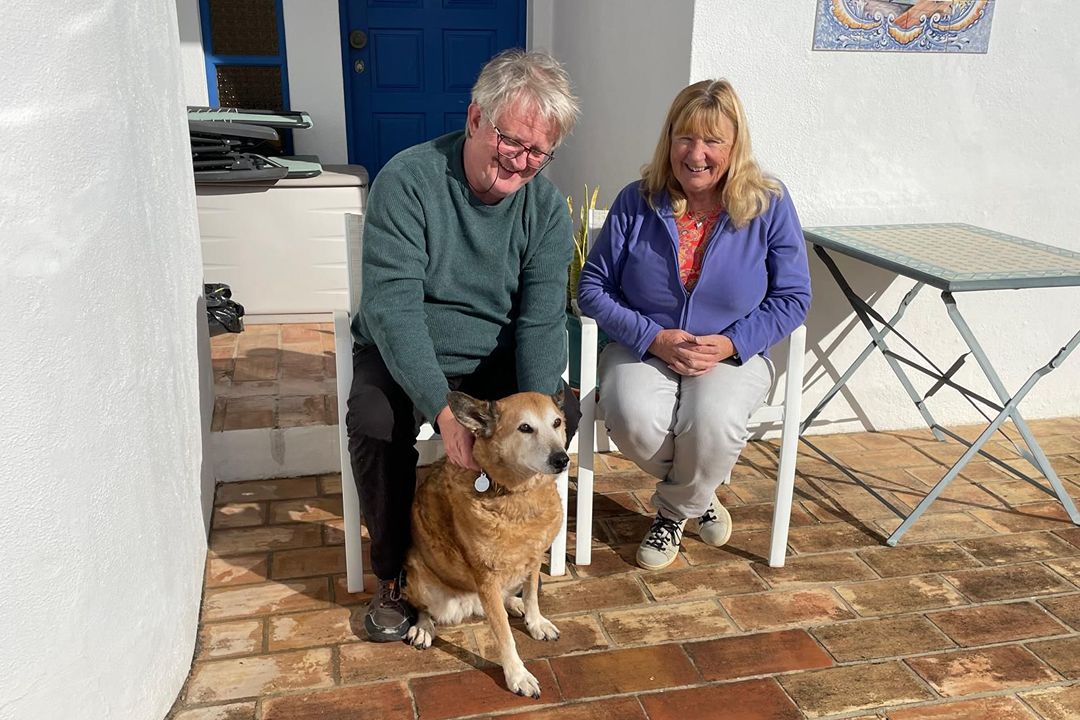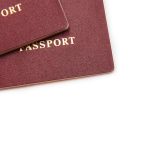Luís has evolved from a professional bodyboarder to a sub-marine fisherman in a fascinating life journey that has taken him from Cape Verde, Hawaii and Tahiti to the depths of the Algarve’s oceans using only his lung power and determination.
Luís began his career with the ocean as a professional bodyboarder. He was number two in Portugal and made the nationals and world tour. By 24, he only knew how to surf and realised he needed to find a new career. His confidence in the waves and ability to hold his breath – skills he’d learnt surfing – were to lead to another career.
Initially, he started fishing for percebes (goose barnacles) for fun, but he soon became hooked. He got his licence to fish officially and started to sell to restaurants. Fishing is in his blood. His grandfather was a fisherman from Vila do Bispo, where Luís still lives. His mother is also a keen fisherman but never made a living from it.
Luís recounts his maternal grandfather’s tales of the fishermens’ catch being dragged up the hill from the Sagres harbour by donkeys. “My grandparents told me there used to be huge catches of fish. Then, there were lobsters everywhere, now I never see lobsters.”
This was in the 1940s, when the saying ‘Hoje carregaste a burra’ originated. Directly translated it means ‘today you load the donkey’, an expression still used in the Algarve to say that you have caught a lot of fish. The villagers would take the donkeys to the harbour and load them every day with 100 kg of percebes. In those days, the seafood caught did not have a big value as there were no tourists to buy them. Instead, they were sold in the doca pesca (fishing dock). Luís’ grandfather was at sea every day and still had no money, so it was not a way to earn a good living.
In his early fishing career, Luís was gifted a boat from the father of an ex-girlfriend. He then invested in a larger vessel that can go further out to sea; he launches it in Sagres. His vessel holds a sonar so he can detect where there are shoals of fish.
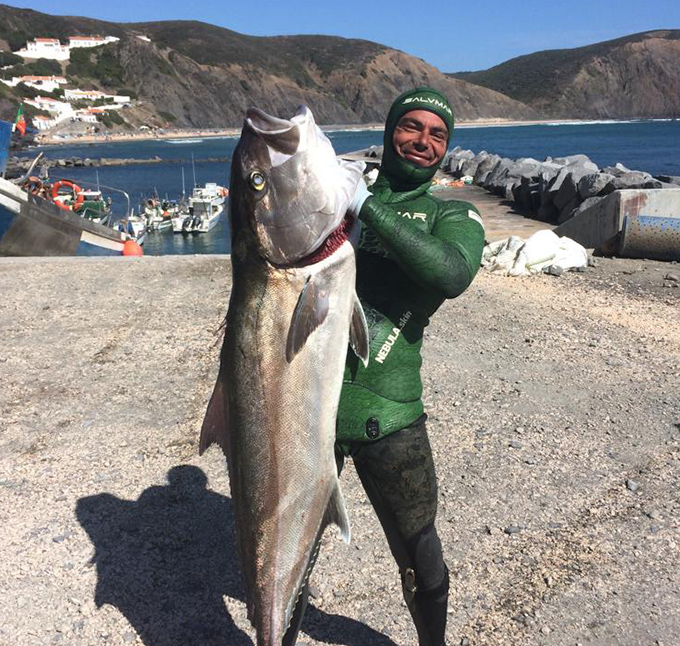
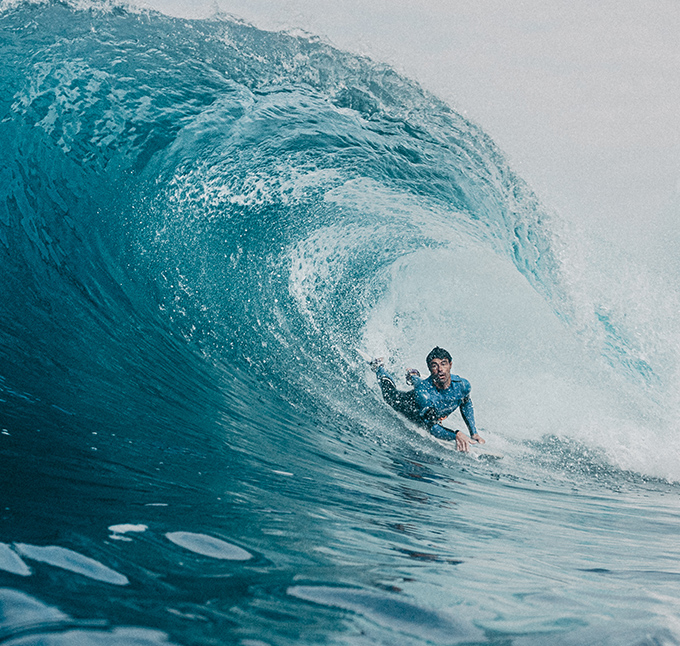
From Sagres, he journeys towards Carrapateira, an hour out to sea. For safety, he prefers to take a companion and is currently training a protégé Raffa, whom he says has real potential. In order to gather the more valuable percebes that grow on the rocks beneath the ocean, he must dive down using just his lung power, and chisel them from the rocks while fighting currents and waves. They are considered such a delicacy he can sell these for 25€ a kilo. I was fortunate enough to try them and they are fat and juicy and taste deliciously of the ocean. However, making that kind of money, the equivalent to gold dust for an Algarvian, comes with some risk.
Luís does not use nets to bring in his haul of sea bream (sargos), octopus (lulas), spider crabs (navalheira) and the slipper lobster (cigarra do mar), insisting “that would be boring”. For the shellfish, he just uses a searchlight and his bare hands to gather them from holes under the rocks. To catch fish, he holds his breath for up to two minutes and dives sometimes 30 metres to the ocean depths. It is illegal to spear fish using breathing equipment and, on a couple of occasions, he pushed himself too hard and almost blacked out. He waits for the right fish, which he spears in the back of the neck, then kills it, to avoid the fish bleeding out.
This might make some people feel squeamish but, in the aftermath of the Netflix documentary Seaspiracy, he believes it is sustainable. “I do not kill the smaller fish, I just select the biggest and I believe people need fish in their diet. Farmed fish contains antibiotics and is not so good for us. It makes me angry that sometimes I see nets under the water that have broken free and are lying on the ocean bed killing fish and other sea life needlessly.”
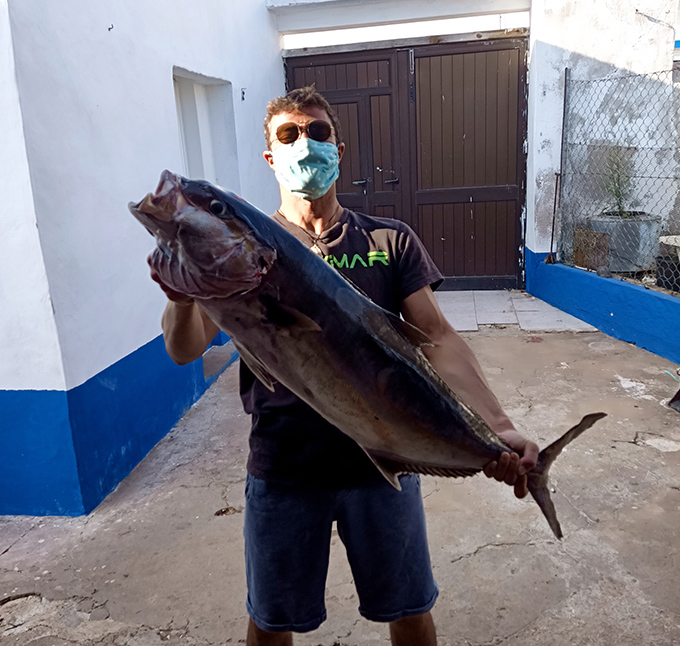
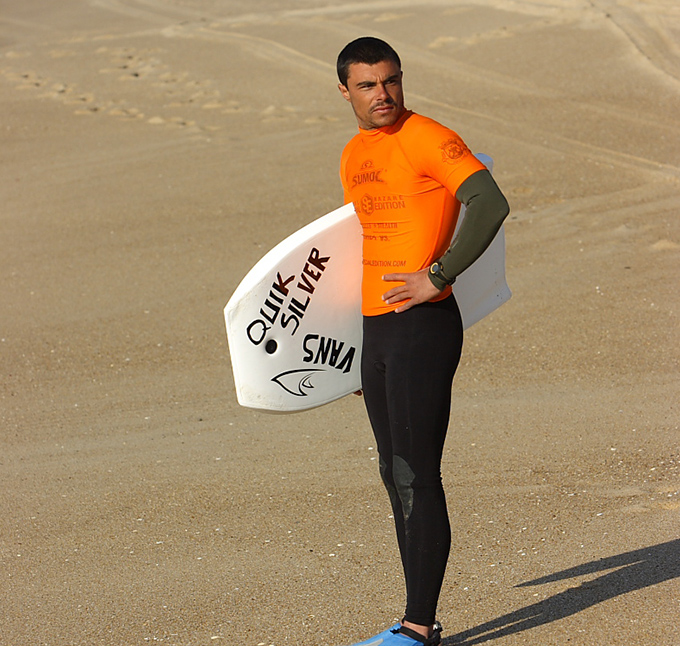
He is particularly passionate about the need to remove plastic from the ocean, which he believes is a more serious problem. “The ocean is full of plastic,” he tells me. He has a video from a friend who found a sea bass with a plastic bottle inside of its body. “We should stop making plastic, not stop fishing.”
Fifteen years ago, Luís travelled to Cape Verde and fell in love with it. In past years, he has been going there every January to surf and he also fishes and sells his catch in the Portuguese colony to finance his trip. He tells me the fish there is very cheap – just 3€ a kilo. He believes that the lot of the Algarve fisherman is not an unhappy one. He tells me most make good money but it’s the traders who buy the fish from doca pesca and sell them on that make the most profit.
“My boss is the sea. When the seas are big, the boss says no. Sometimes I can go two months without working, but from April to October I can go every day and I make good money, which I have to make last all year.” He has a contact list of restaurants who he sells to from Sagres to Portimão, but admits that, for him, “that is the boring part!”
Luís’s biggest catch in Portugal has been a corvina which weighed in at 38 kg. In Cape Verde, he caught a hammer jack weighing 54 kg.
So is this local happy with his lifestyle? “I am not rich and I am not poor – I have a good life,” Luís says. Now aged 40, he hopes one day to have children to pass on his skills to the next generation.
Luís is a happy breed of locals who have the Algarve in their blood. They have witnessed many changes in recent years, but have adapted to live a good life from the Algarve’s rich bounty.
